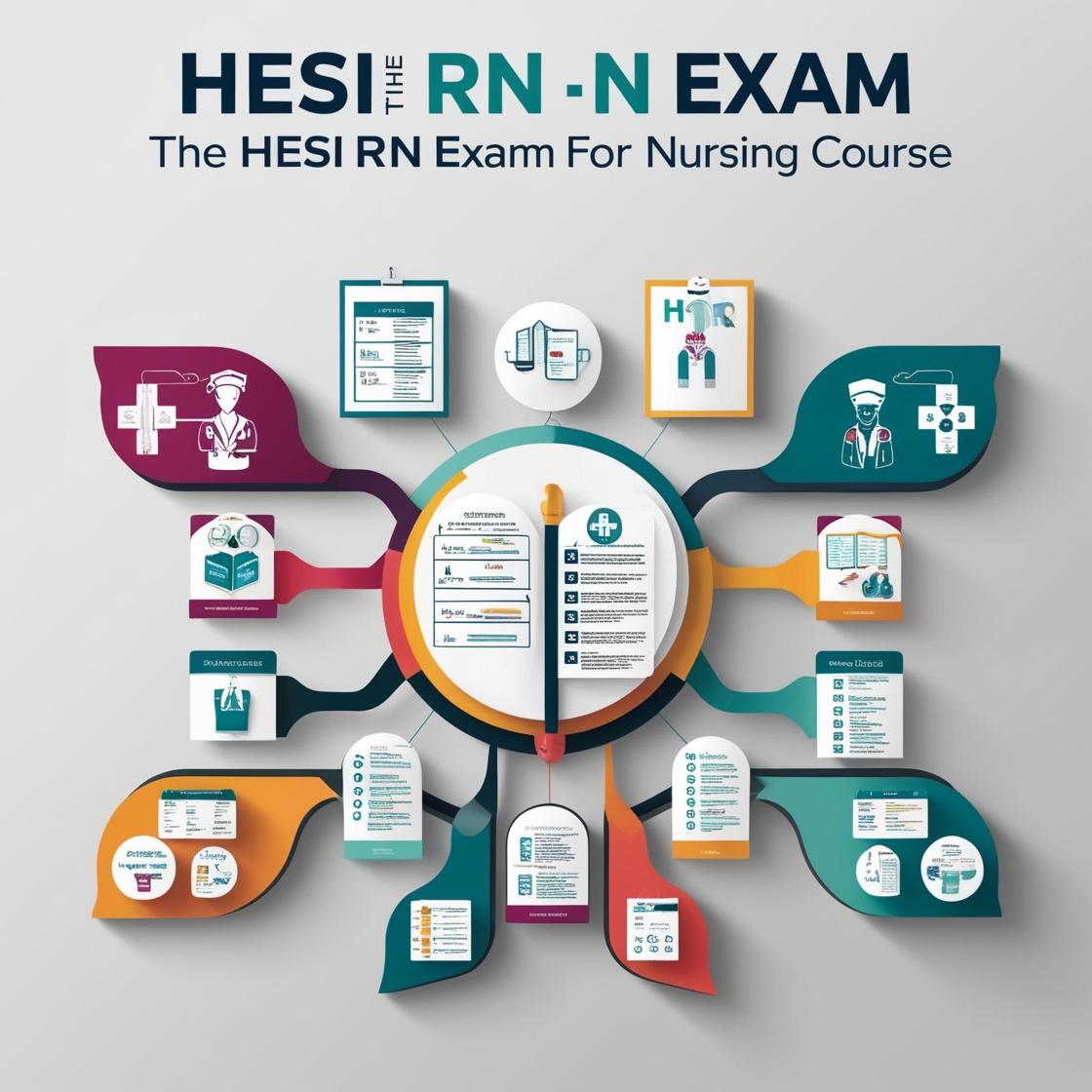HESI RN
HESI Leadership and Management
1. Which advice is most beneficial for a new nurse manager?
- A. Strive to embody the manager your staff desires while also aligning with your administration's expectations.
- B. Keep in mind that it may take 6 months to feel at ease in a new role.
- C. Begin by mentoring other novice nurse managers.
- D. Participate in substantial personal growth endeavors.
Correct answer: B
Rationale: The most helpful advice for a new nurse manager is to understand that it can take up to 6 months to feel comfortable in a new position. This allows the individual to manage their expectations and give themselves time to adapt to their new role. Choice A may be overwhelming and could cause conflicting priorities for the new nurse manager. Choice C, while valuable, might not be the immediate focus for someone new to the role. Choice D, although important, may not be as time-sensitive as the adjustment period in the new position.
2. For a male client with hyperglycemia, which assessment finding best supports a nursing diagnosis of Deficient fluid volume?
- A. Cool, clammy skin
- B. Distended neck veins
- C. Increased urine osmolarity
- D. Decreased serum sodium level
Correct answer: C
Rationale: Increased urine osmolarity is the best assessment finding supporting a nursing diagnosis of Deficient fluid volume in a male client with hyperglycemia. In hyperglycemia, there is increased glucose in the blood, which leads to osmotic diuresis. This results in the excretion of large amounts of urine that is concentrated (high osmolarity), leading to dehydration and fluid volume deficit. Cool, clammy skin (Choice A) is more indicative of poor perfusion, distended neck veins (Choice B) are associated with fluid volume excess, and decreased serum sodium level (Choice D) could be a result of dilutional hyponatremia due to fluid overload rather than deficient fluid volume.
3. An external insulin pump is prescribed for a client with DM. The client asks the nurse about the functioning of the pump. The nurse bases the response on the information that the pump:
- A. Gives small continuous doses of regular insulin subcutaneously, and the client can self-administer a bolus with an additional dosage from the pump before each meal.
- B. Is timed to release programmed doses of regular or NPH insulin into the bloodstream at specific intervals.
- C. Is surgically attached to the pancreas and infuses regular insulin into the pancreas, which in turn releases the insulin into the bloodstream.
- D. Continuously infuses small amounts of NPH insulin into the bloodstream while regularly monitoring blood glucose levels.
Correct answer: A
Rationale: The correct answer is A. An external insulin pump delivers small continuous doses of regular insulin subcutaneously throughout the day to meet the basal insulin needs. The client can also self-administer a bolus dose with an additional dosage from the pump before each meal to cover the mealtime insulin needs. Option B is incorrect as insulin pumps do not typically release programmed doses of insulin into the bloodstream at specific intervals; instead, they infuse insulin subcutaneously. Option C is incorrect as insulin pumps are not surgically attached to the pancreas; they are worn externally. Option D is incorrect as NPH insulin is not commonly used in insulin pumps, and the pumps do not continuously infuse insulin directly into the bloodstream but rather subcutaneously.
4. A client with DM is preparing for a foot care exam. The nurse should advise the client to:
- A. Wear loose-fitting shoes to protect the feet.
- B. Apply lotion to the tops and bottoms of the feet to keep the skin moist.
- C. Avoid using a heating pad to prevent burns on the feet.
- D. Avoid using sharp instruments to trim the toenails.
Correct answer: D
Rationale: The correct answer is to advise the client to avoid using sharp instruments to trim the toenails. This is crucial because using sharp instruments can lead to injuries such as cuts or wounds, increasing the risk of infections, especially in clients with diabetes who have decreased sensation in their feet. Choice A is incorrect because tight shoes can restrict circulation and increase the risk of pressure sores. Choice B is incorrect because applying lotion between the toes can create a moist environment, leading to fungal infections. Choice C is incorrect because using a heating pad can lead to burns, which can go unnoticed due to decreased sensation in diabetic feet.
5. Which of the following statements should be included in the teaching to a client about a do-not-resuscitate order (DNR)?
- A. When a heart ceases to beat, the client is pronounced clinically dead.
- B. Physicians are required to write DNR orders.
- C. A DNR order can be written after discussion with the client and family.
- D. A court decision is needed for a DNR.
Correct answer: C
Rationale: The correct statement to include in teaching a client about a do-not-resuscitate (DNR) order is that it can be written after discussion with the client and family. This involves ensuring that the client and their family understand the implications and make an informed decision. Choice A is incorrect as pronouncing clinical death is not directly related to discussing a DNR order. Choice B is incorrect as while physicians typically write DNR orders, it is not a strict requirement. Choice D is incorrect as a court decision is not typically required for a DNR order; it is a decision made by the client with input from healthcare providers and family members.
Similar Questions

Access More Features
HESI RN Basic
$69.99/ 30 days
- 50,000 Questions with answers
- All HESI courses Coverage
- 30 days access @ $69.99
HESI RN Premium
$149.99/ 90 days
- 50,000 Questions with answers
- All HESI courses Coverage
- 30 days access @ $149.99
